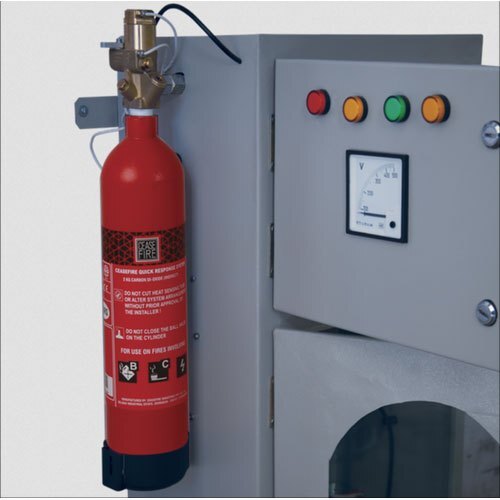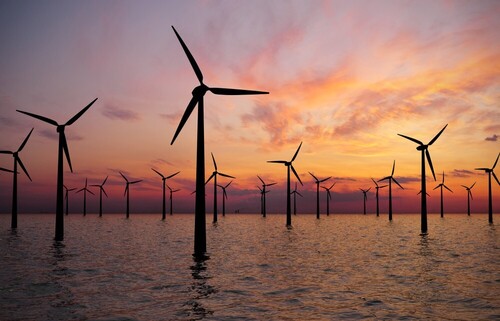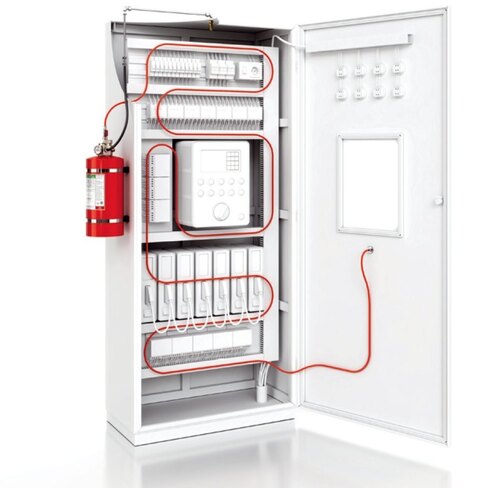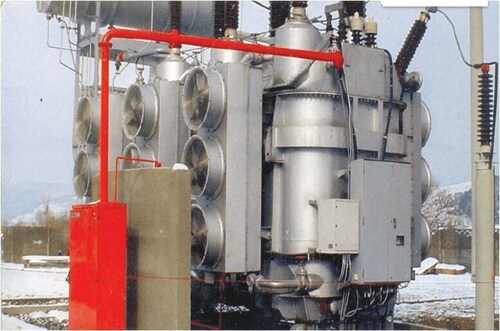- Home Page
- Company Profile
-
Our Products
- Fire Suppression Systems
- FK 5112 Suppression System
- Clean Agent Cylinderless System
- Clean Agent Cylinderless System for Car
- Wind Turbine Fire Detection and Suppression System
- Vehicle Fire Protection System
- Mild Steel Novec 1230 Fire Suppression System
- Fire Extinguishing System For Electrical Cabinets
- Aerosol Fire Suppression System
- Novec 1230 Flooding System
- Hfc 227ea Based Fire Suppression System
- Modular Clean Agent HFC236fa Extinguishers
- Aerosol Based Fire Suppression System
- FM200 Fire Suppression System
- Cylinder Less Tube Based Fire Detection Suppression Systems
- High Voltage Transformer Fire Suppression System
- Hfc227ea Clean Agent Fire Extinguishers
- Novec 1230 Clean Agent Suppression Systems
- Carbon Steel Fm 200 Fire Suppression System
- Direct Tube Based Fire Suppression System
- Novac 1230 Fire Flooding Systems
- Clean Agent Fire Suppression System
- Hfc 227ea Auto Fire Extinguishing System
- Car Fire Protection System
- Fire Suppression For Power Generators
- Hfc227ea Total Flooding System
- Dual Agent Retardant fire Suppression System
- Heat Sensing Tube
- Clean Agent Fire Suppression System for Wind Turbine
- Bus Engine Fire Protection System
- Fire Trace System
- Novec 1230 Fire Suppression System
- SEVO Tubing Suppression System
- Fire Detection And Fire Suppression System
- Heavy Vehicle Fire Suppression Systems
- Fire Sprinkler System Installation Service
- Vehicle Fire Suppression System
- Pre Engineered Fire Suppression System
- Server Rack Fire Suppression System
- Mild Steel Fire Suppression Systems
- Fire Suppression System (Capacitor Panel)
- Electrical Panel Detection Suppression System
- Fire Detection Tube Suppression System
- Fire Extinguishing System For Electrical Panel
- Electrical Panel Gas Suppression System
- Novec 1230 Fire Suppression System for Industrial
- Fm200 Gas Based Fire Suppression Systems
- FM200 Gas Based Fire Suppression Systems For Wind Turbines
- Tube Based Fire Suppression System
- Novec 1230 Fire Gas Suppression System For Electrical Panel
- Novec 1230 Fire Extinguishing System
- Novec 1230 Gas Suppression System For Wind Turbine Fire Suppression System
- Nitrogen Injection Transformer Fire Protection System
- Electrical Panel Fire Suppression System
- Dual Agent Retardant Fire Suppression System
- Diffusible FE36 Fire Suppression System
- Hazardous Cabinets Fire Suppression System
- Chemical Fire Suppression Systems
- Nitrogen NITFP System
- Automatic Fire Detection and Suppression System
- Novec 1230 Fire Suppression Systems
- Fire Suppression For Wind Turbines
- Bladder Tank Proportioning System
- Electrical Panel Fire Suppression
- Fk 5112 Fire Suppression System
- Fire Extinguishing Systems
- Fire Alarms And Detection Systems
- White Addressable Duct Detector
- UV IR Flame Detector
- Agni Sounder Hooter
- Addressable Fire Alarm System
- Fire Alarm System Amc Service
- Conventional Fire Alarm System
- Digital Addressable Fire Alarm System
- Aspirating Systems Smoke Detectors
- Agni Addressable Security Fire Alarm
- Fire Detection And Fire Alarm System
- Uv Ir Flame Detector System
- Ravel 2 zone Conventional Fire Alarm System
- Addressable Photoelectric Duct Detector
- Fire Alarm Sounder
- Fire Response Indicator
- Vesda Aspirating Smoke Detection System
- 4 Zone Addressable Fire Alarm System
- Ravel 4 zone Conventional Fire Alarm System
- Fire Detection Fire Alarm System
- Co2 Flooding/Suppression System
- High Pressure Co2 Automatic Fire Extinguishing System
- Co2 Gas Fire Suppression System
- CO2 Suppression System
- CO2 Fire Flooding
- ELECTRICAL PANEL CO2 FLOODING SYSTEM
- Automatic Pipeline Co2 Fire Suppression System
- Co2 Fire Flooding System
- Co2 Cylinder Fire Suppression System
- In Direct CO2 Flooding System
- Co2 Based Fire Suppression Systems
- Automatic Co2 Flooding System
- Automatic CO2 Flooding System
- Gas Based Co2 Flooding System
- Automatic Pipeline CO2 Fire Suppression System
- Co2 Fire Suppression System
- Passive Fire Protection
- Fire Extinguishers
- Twin Trolley Type Fire Extinguisher
- Co2 Fire Extinguisher Refilling Service
- Clean Agent Type Fire Extinguisher
- Amc For Fire Fighting System
- Co2 type fire Extinguisher
- Mild Steel Wet Chemical Fire Extinguisher
- Carbon Steel Abc Fire Extinguisher
- Automatic Ceiling Mounted D Type Fire Extinguisher
- Water Spray Sprinkler Systems
- Kanex Fire Extinguishers
- Fe36 Clean Agent Fire Extinguisher
- Modular Dry Chemical Powder Extinguishers
- Kitchen Fire Suppression System
- Kitchen Fire Suppression System
- Mild Steel Kitchen Fire Suppression
- Kitchen Hood Fire Suppression System
- Automatic Kitchen Fire Extinguishing System
- Kitchen Fire Extinguisher
- kitchen Nozzle Fire Suppression System
- Restaurant Kitchen Fire Suppression System
- Fire Suppression System For Commercial Kitchen
- Commercial Kitchen Fire Suppression System
- HW & MV Fire Protection System
- Commercial Gas Leak Detector
- Medium Velocity Water Spray System (MVWS)
- Transformer Fire Protection System
- Transformer Fire Prevention System
- Transformer Fire Suppression Systems
- Conveyor belt system fire protection system
- Nitrogen Injection Fire Protection System For Transformer
- High Velocity Water Spray System (HVWS)
- Fire Suppression Accessories
- Fire Hydrant System
- Clean Agent Gas Refilling
- Fire Fighting Foams
- Smoke Detector
- Ravel Beam Smoke Detector
- Addressable Photoelectric Smoke Detector
- Addressable Smoke Detector
- Fire Alarm Addressable Smoke Detector
- Battery Addressable Smoke Detector
- Polycarbonate Smoke Detector
- Agni Smoke Detector
- Conventional Optical Smoke Detectors
- Addressable Duct Smoke Detector
- Agni Wireless Smoke Detector
- White Polycarbonate Smoke Detector
- Manual Call Point
- Fire Retardant Fabric
- Fire Alarm Control Panel
- Heat Detector
- Beam Detectors
- Fire Door
- HW&MV Fire Protection
- Fire Cable Coating
- Fire Cable
- Public Address Systems
- Hydraulic Hose
- Fire Suppression Systems
- Contact Us

Chemical Fire Suppression Systems
700000 INR/Set
Product Details:
X
Chemical Fire Suppression System Price and Quantity
- 700000 INR/Set
- 1 Set
Chemical Fire Suppression Systems Trade Information
- Cheque
- Asia
- All India
Product Description
A chemical fire suppression system, also known as a chemical fire extinguishing system, is a specialized firefighting system designed to extinguish or control fires by using chemicals rather than water. These systems are commonly used in environments where water-based suppression methods may not be effective or can cause further damage, such as in areas with sensitive electronic equipment, flammable liquids, or in situations where water could react with the fire.
There are several types of chemical fire suppression systems, each designed for specific applications. Some common types include:
1. Clean Agent Systems: Clean agents are electrically non-conductive, leave no residue, and are safe for use in occupied spaces. Examples of clean agents include halocarbon compounds like HFC-227ea (also known as FM-200), HFC-125 (also known as FE-25), and inert gases like nitrogen and argon. These systems work by displacing oxygen in the fire environment to suppress combustion.
2. CO2 (Carbon Dioxide) Systems: CO2 is a colorless, odorless gas that is commonly used for fire suppression in areas where rapid fire control is essential, such as computer server rooms, archives, and industrial facilities. CO2 works by reducing the oxygen concentration in the fire area to a level where combustion cannot occur.
3. Dry Chemical Systems: Dry chemical fire suppression systems use specially formulated powders or chemicals to suppress fires. These systems are often used in industrial settings and on vehicles like fire trucks. Dry chemical agents can smother fires and interrupt the chemical reaction necessary for combustion.
4. Foam Systems: Foam fire suppression systems use a mixture of water and foam concentrate to create a foam blanket that covers the fuel and suppresses the fire. These systems are effective for combating flammable liquid fires and are often used in facilities with storage tanks, refineries, and airports.
5. Water Mist Systems: Water mist systems use finely atomized water droplets to cool the fire and displace oxygen, making it suitable for a wide range of applications, including machinery spaces on ships and cooking areas in commercial kitchens. These systems can use pure water or water with additives depending on the fire type.
FAQ:
Q. What is a chemical fire suppression system?
Ans: A chemical fire suppression system is a specialized firefighting system designed to extinguish or control fires using chemicals rather than water. These systems are particularly useful in environments where water-based suppression methods are not suitable or may cause more harm than good.
Q. Where are chemical fire suppression systems commonly used?
Ans: Chemical fire suppression systems are commonly used in a wide range of applications, including server rooms, data centers, archives, industrial facilities, chemical storage areas, vehicle engine compartments, and more. They are chosen based on the specific fire risks present.
Q. How does a chemical fire suppression system work?
Ans: The operation of a chemical fire suppression system varies depending on the type of system being used. However, in general, these systems work by releasing a chemical agent that either displaces oxygen, cools the fire, or interrupts the chemical reactions necessary for combustion, effectively extinguishing the fire.
Q. What are some common types of chemical fire suppression agents?
Ans: Common chemical fire suppression agents include clean agents like HFC-227ea (FM-200), CO2 (carbon dioxide), dry chemical powders, foam concentrates, and water mist solutions. Each type of agent has its own specific applications and advantages.
Q. Are chemical fire suppression agents safe for people and the environment?
Ans: Many chemical fire suppression agents are designed to be safe for occupied spaces, leaving no residue or harmful byproducts. However, it's essential to follow safety protocols, conduct regular maintenance, and ensure proper ventilation in enclosed spaces where these agents are used.
Q. How are chemical fire suppression systems activated?
Ans: Chemical fire suppression systems can be activated automatically through fire detection devices like smoke detectors or heat detectors. They can also be manually activated by pulling a fire alarm or using a manual pull station in some cases.
Q. What are the advantages of chemical fire suppression systems over traditional water-based systems?
Ans: Chemical fire suppression systems offer several advantages, including the ability to suppress fires without causing water damage to sensitive equipment, quick response times, and suitability for various types of fire hazards.
Q. What are the maintenance requirements for chemical fire suppression systems?
Ans: Regular maintenance is crucial to ensure the reliability of chemical fire suppression systems. Maintenance typically includes inspections, pressure tests, agent refills, and functional tests as per the manufacturer's guidelines and local regulations.
Q. Are there any regulatory standards for chemical fire suppression systems?
Ans: Yes, there are often local, national, and international standards and regulations that govern the design, installation, and maintenance of chemical fire suppression systems. Compliance with these standards is essential for safety and legal reasons.
Q. Can chemical fire suppression systems be retrofitted into existing buildings or facilities?
Ans: Yes, chemical fire suppression systems can often be retrofitted into existing structures. However, the feasibility and cost-effectiveness of retrofitting depend on various factors, including the existing infrastructure and the specific requirements of the system.
Q. Is training required for personnel responsible for operating chemical fire suppression systems?
Ans: Yes, training is essential for personnel responsible for operating and maintaining chemical fire suppression systems. Proper training ensures that individuals understand how to use the systems effectively and safely during fire emergencies.
Q. Can chemical fire suppression systems be integrated with other fire safety measures, such as fire alarms and sprinklers?
Ans: Yes, chemical fire suppression systems can be integrated with other fire safety measures, such as fire alarms and sprinklers, to create a comprehensive fire protection strategy. Integration ensures a coordinated response to fire incidents.
Tell us about your requirement

Price:
Quantity
Select Unit
- 50
- 100
- 200
- 250
- 500
- 1000+
Additional detail
Mobile number
Email
Other Products in 'Fire Suppression Systems' category
" We mainly want inquiries from Gujarat, Rajasthan, Madhya Pradesh, Maharashtra, Goa. "







 English
English Spanish
Spanish French
French German
German Italian
Italian Chinese (Simplified)
Chinese (Simplified) Japanese
Japanese Korean
Korean Arabic
Arabic Portuguese
Portuguese